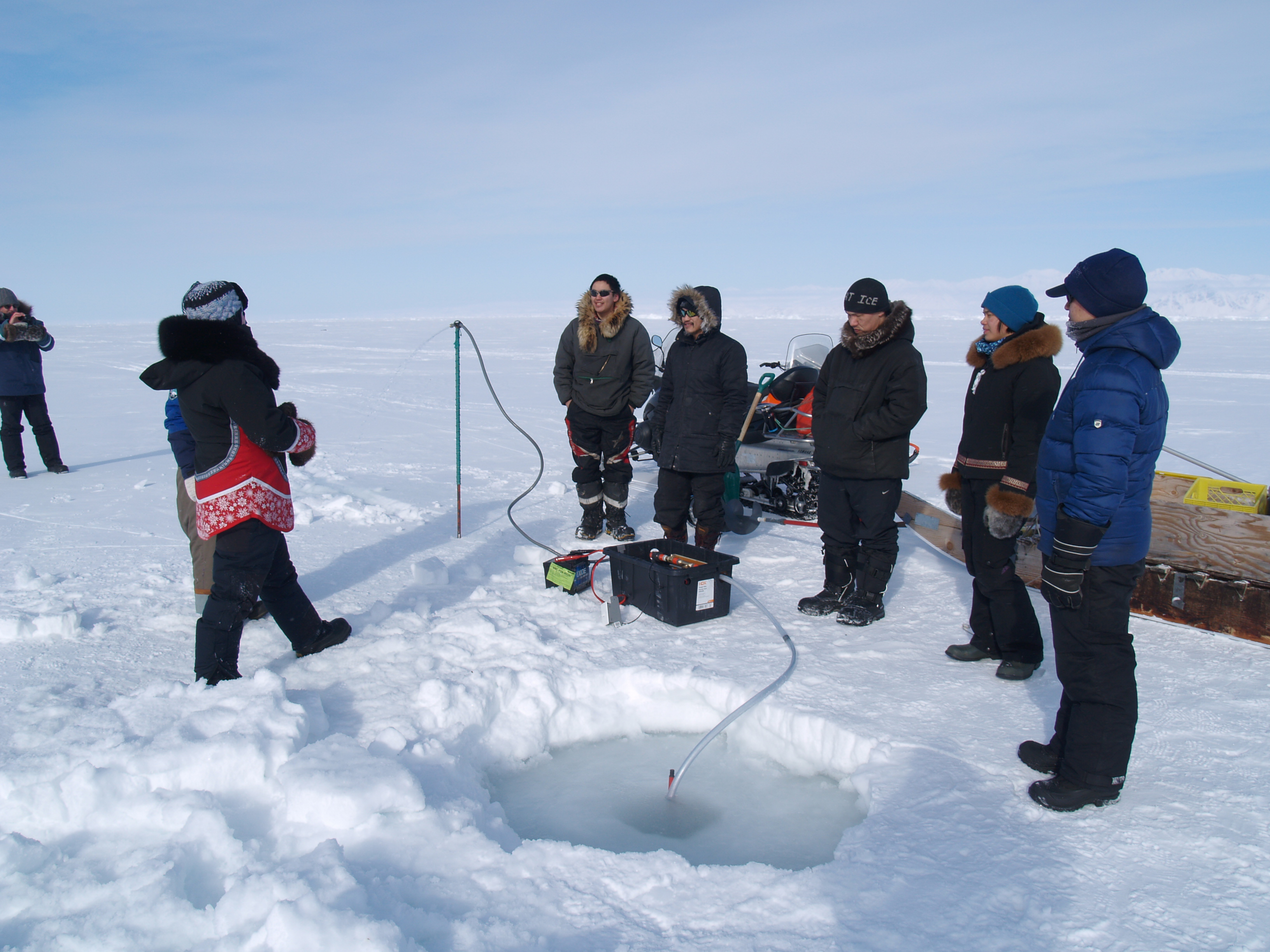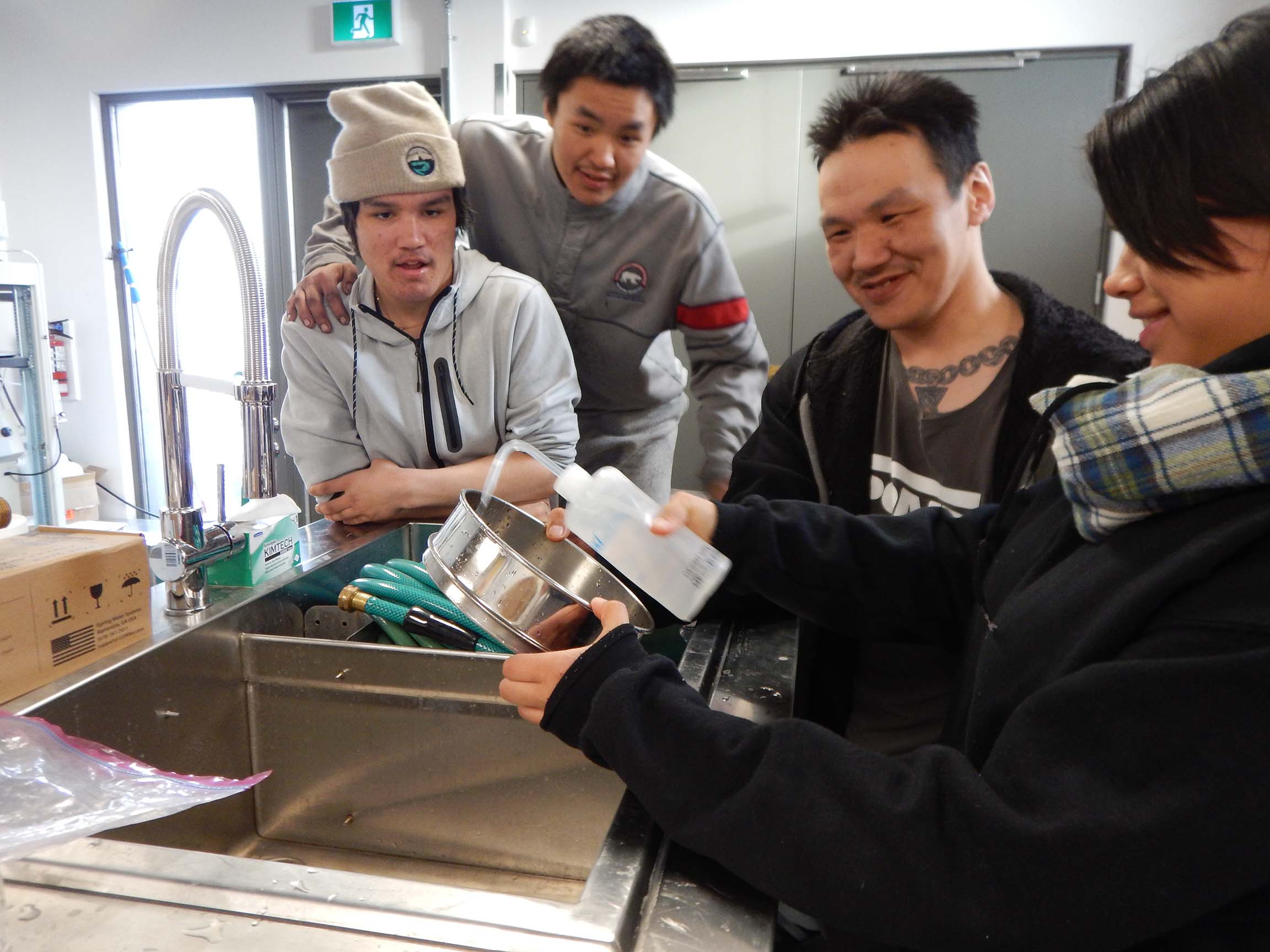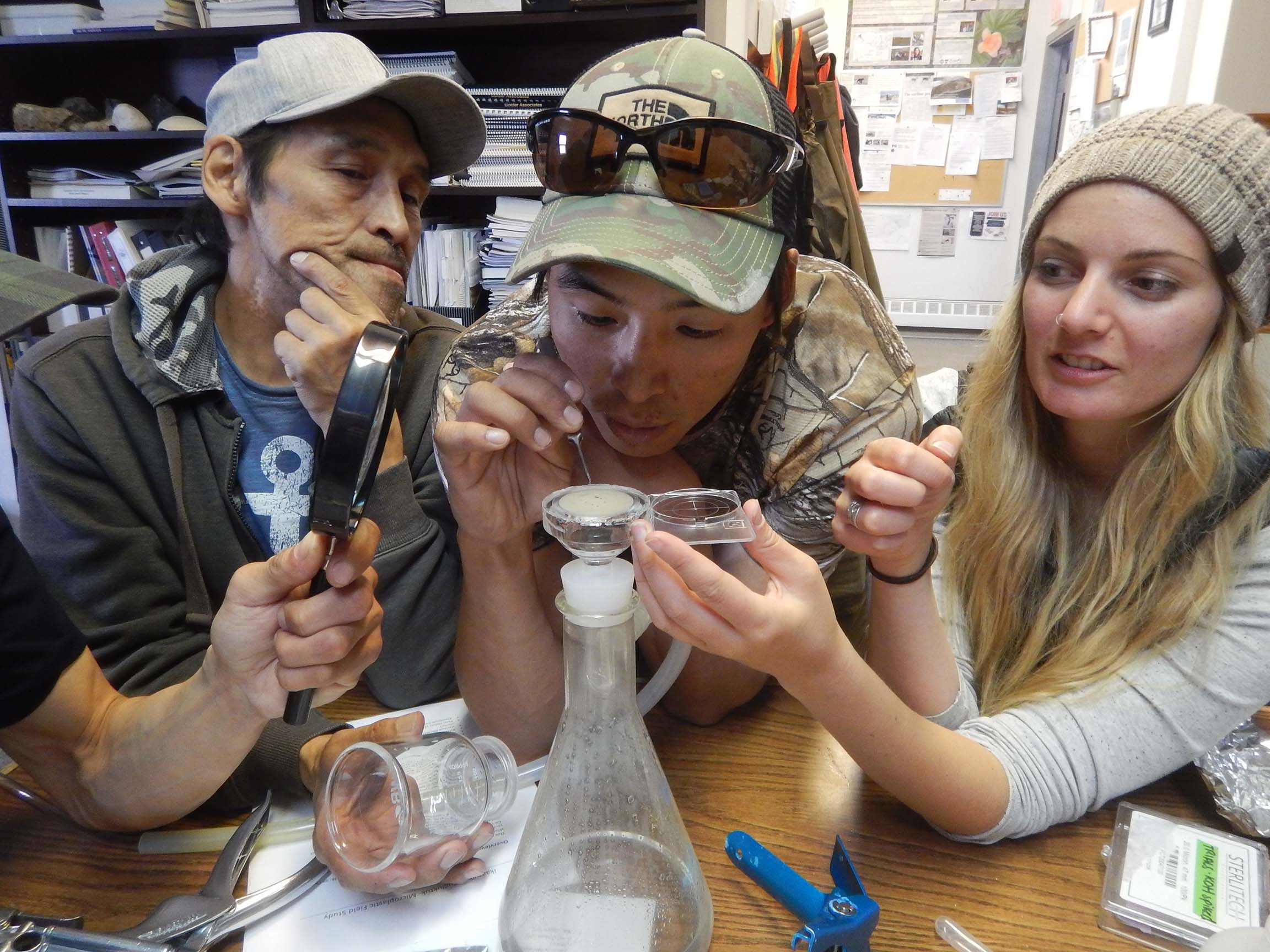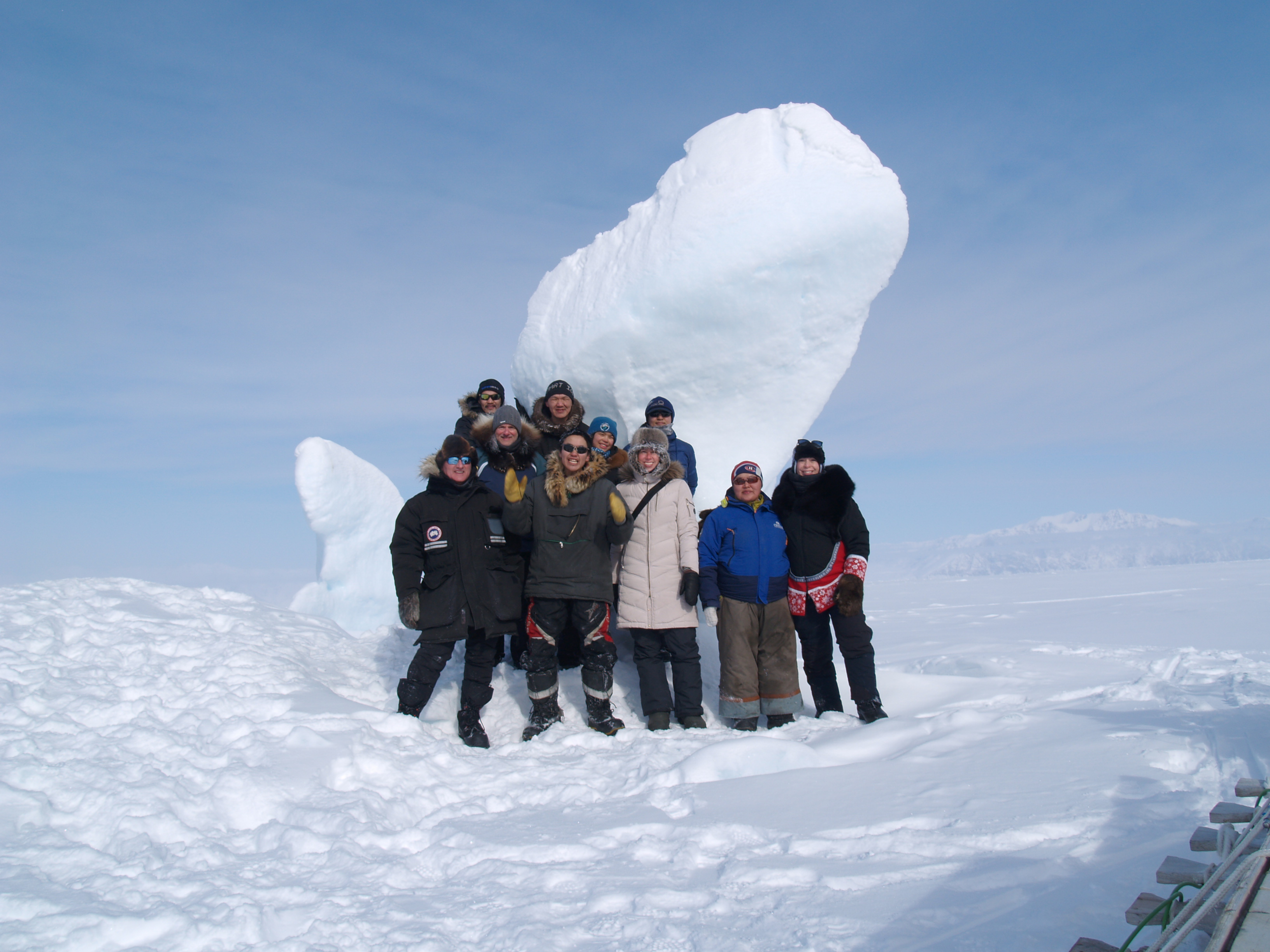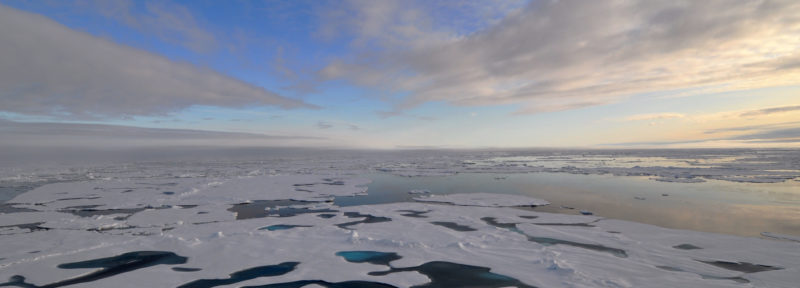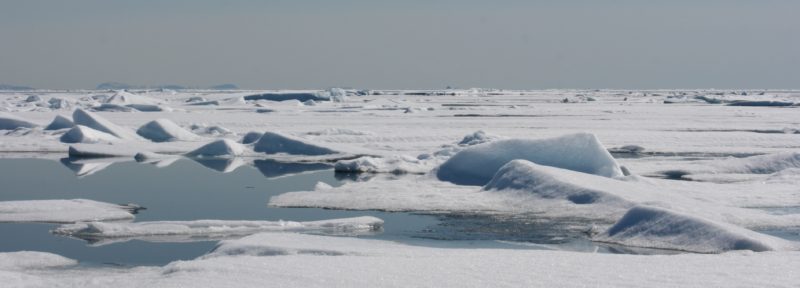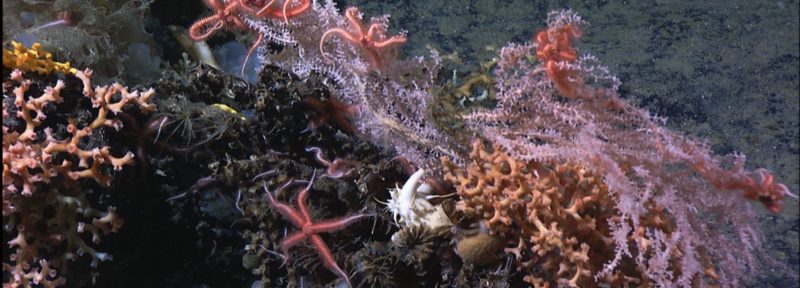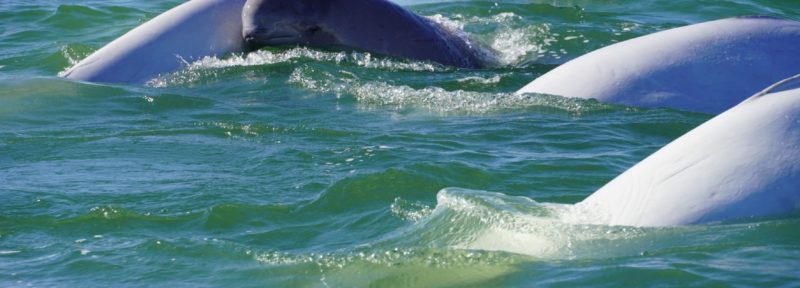Pilot Program Conducts Ocean Plastics Workshop with Youth from Nunavut’s Pond Inlet
Collecting seawater samples through the ice outside Pond Inlet, Nunavut.
Credit: Sid Pain
The problem of plastic and microplastic pollution is in the news almost weekly and is a growing concern around the world. The Arctic is no exception. From fishing gear on the shores of Svalbard, Norway to microplastic fibres off the coast of Vancouver, plastic waste seems to be showing up everywhere. Oceans North and Ocean Wise have teamed up on a pilot project to tackle one small aspect of this issue and engage with northern communities on local research in a meaningful way. The Arctic Community Ocean Plastics Initiative samples seawater to look for microplastics and build capacity for community-based plastic monitoring in the Arctic. This past spring, we held our second workshop with youth from Pond Inlet, Nunavut.
Processing a seawater sample in Pond Inlet.
Credit: Eric Solomon
This came a year after our first pilot workshop in the community of Kugluktuk, Nunavut in July 2018. During this two-day workshop, youth sampled water at three locations and were introduced to the issue of plastics pollution and research design. The first set of samples was processed in the Ocean Wise Environmental Plastics Facility, and some microplastics in the form of polyester fibres were found in quantities similar to those found in remote areas along the British Columbia coast. Only a portion of the samples has been processed so far and there is a chance that some fibres could have come off our clothes at the time of water sampling.
Adrian Scott and Gordon Kokak process a sample with Rhiannon Moore in Kugluktuk, Nunavut.
Credit: Kristin Westdal
In April of 2019, we conducted a second pilot program with youth from Pond Inlet. Eight youth participated in the workshop and training, which was funded by Environment and Climate Change Canada. We discussed plastics and plastic pollution in the oceans, participants’ ideas about sources, both global and local, and the impacts of this pollution on wildlife and people. Then we headed out onto the sea ice to collect seawater samples. This time, we used a specially designed closed system to avoid any possible contamination from our clothes or other airborne microplastics.
As far as we know, this was the first time anyone has sampled for microplastics through sea ice or tested the sampling system in cold weather (-20 to -30 degrees Celsius). Sampling in Pond Inlet in early spring presented some unique challenges: the water was at -1.6 degrees C, barely above the freezing temperature of seawater. As soon as the seawater hit the cold temperatures above the ice, it tended to freeze. However, through the ingenuity of the participants, and modifications back in the lab, all of the challenges were overcome.
A total of five samples from Pond Inlet were returned to the Ocean Wise Environmental Plastics Facility where the samples were analyzed. The youth, and Ocean Wise and Oceans North staff will interpret the results together, and the group will then communicate the results to the local community. Results are expected soon.
With two workshops under our belt, and engaged youth in two communities, we are confident and prepared to continue to develop this program. The intention is to carry out similar workshops in communities across the Canadian Arctic and create a network of youth who are concerned about the topic of microplastics and marine debris, and trained to conduct water sampling. In the long term, creating capacity in these communities can help empower local citizens to do their own research, and hopefully lead to a long-term data set on plastics in Arctic waters.
Taking a break from microplastics sampling outside Pond Inlet, Nunavut
Credit: Sid Pain
Kristin Westdal is Arctic field research director for Oceans North. Eric Solomon is director of Arctic programs at Ocean Wise Conservation Association and co-lead for Ikaarvik: Barriers to Bridges.

